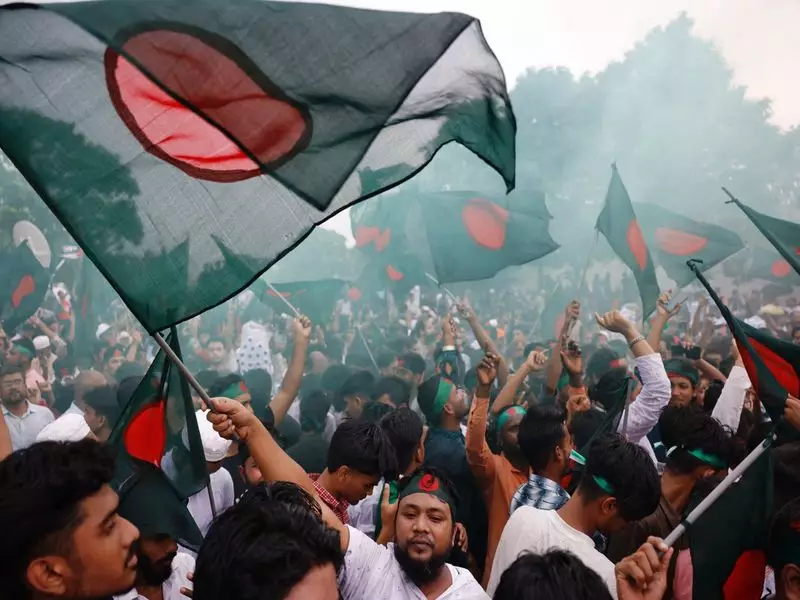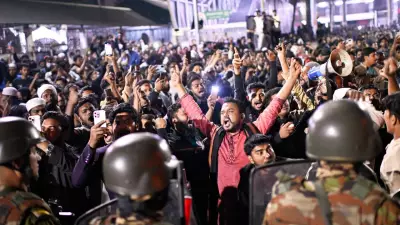
Bangladesh has been plunged into political turmoil as violent clashes erupted across the country ahead of a crucial court verdict in a case involving Prime Minister Sheikh Hasina. The unrest has resulted in multiple casualties and widespread property damage.
Nationwide Protests Turn Violent
Supporters of the main opposition party, Bangladesh Nationalist Party (BNP), took to the streets in massive demonstrations that quickly turned violent. At least one person was killed and dozens injured as police clashed with protesters in various parts of the country.
The violence intensified particularly in the capital Dhaka, where opposition activists set fire to vehicles and blocked major roads. Security forces responded with tear gas and rubber bullets to disperse the angry crowds. Similar scenes unfolded in other cities including Chittagong and Khulna.
The Case That Sparked the Unrest
The immediate trigger for the violence is a pending verdict in what's known as the "Gatco graft case" against Sheikh Hasina. This corruption case dates back to 2007 when Hasina was arrested during the military-backed caretaker government.
The case involves allegations of corruption in awarding container handling operations at Chittagong port and Dhaka's inland container depot to Gatco Company. Hasina has consistently denied these charges, calling them politically motivated.
BNP leaders have accused the government of using the judiciary to target political opponents. "This verdict is being orchestrated to eliminate opposition voices ahead of elections," claimed a senior BNP official who spoke on condition of anonymity.
Government Response and Security Measures
The government has deployed additional security forces across major cities to maintain order. Police have established multiple checkpoints and are conducting random searches of vehicles and pedestrians.
Home Minister Asaduzzaman Khan warned that "the government will take strict action against anyone trying to create anarchy." He emphasized that while peaceful protest is a democratic right, violence and destruction of public property will not be tolerated.
The ruling Awami League has accused the BNP of deliberately inciting violence to destabilize the country. "They are creating chaos because they know they cannot win elections through democratic means," said a government spokesperson.
Impact on Daily Life and International Concern
The political violence has severely disrupted normal life in affected areas. Schools and businesses remained closed in several districts, and public transportation services were suspended indefinitely.
The international community has expressed concern about the deteriorating situation. The United Nations has called for restraint from all parties, while neighboring countries including India are closely monitoring developments given Bangladesh's strategic importance in the region.
Human rights organizations have documented numerous incidents of excessive force and arbitrary arrests. Local human rights groups report at least 500 opposition supporters have been detained in preemptive raids before the planned protests.
Historical Context and Political Tensions
This latest outbreak of violence reflects the deep political polarization that has characterized Bangladeshi politics for decades. The rivalry between Sheikh Hasina's Awami League and the BNP led by Khaleda Zia has often turned violent during crucial political moments.
The current situation is particularly tense because it comes amid preparations for national elections scheduled for next year. Both major parties have been mobilizing their support bases, raising concerns that the political temperature will continue to rise.
Economic analysts warn that prolonged political instability could affect Bangladesh's remarkable economic growth in recent years. The country's ready-made garment industry, which contributes significantly to exports, could face disruptions if the situation worsens.
As Bangladesh awaits the court's verdict, the nation holds its breath, hoping for a peaceful resolution to the current crisis while fearing further escalation of violence that could undermine its democratic institutions and economic progress.





